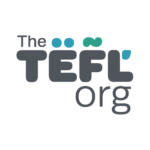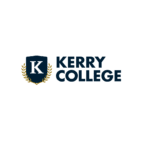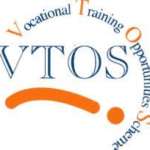The Economic and Social Research Institute (ESRI) today published a new report, “Embracing Diversity in all its Forms: The Voluntary Secondary Sector in Irish Education.” The report examines the contribution of the voluntary secondary sector to the Irish education system, taking a holistic view of what schools are doing and how they are doing it.
Voluntary secondary schools, which account for roughly half of all secondary schools in Ireland, encompass a wide range of religious denominations, Educate Together schools, and schools under private patronage. This variety offers parents and students a wealth of choice in terms of ethos and educational philosophy.
Key findings:
- Differences between the three second-level education sectors in intake and outcome have narrowed over time, though some differences remain. However, the diversity within the voluntary secondary sector remains pronounced, with different schools serving different populations.
- The ethos valued by students includes community-building, extracurricular engagement, balancing academic and personal development, and a commitment to inclusion and diversity.
- There was a sense in many schools of the ethos developing significantly over time, softening, and opening up to more religious diversity among the student population. Some students saw their schools’ religious ethos as playing an important role in promoting awareness, tolerance, and respect, while others disagreed with the religious ethos of their school or religion in schools in general.
- Students, regardless of attending single-sex or coeducational schools, favoured coeducational settings, while staff and parents expressed diverse preferences.
- Gender differences persist in the subjects available to students and in terms of their actual subject choices, as well as in the extent to which different subjects are seen as interesting or difficult. Only a small minority of students find learning Irish interesting, raising implications for the national language.
- Overall, technology was seen to enhance teaching and learning experiences, facilitate communication, support collaborative work and develop independent learning skills. However, there was awareness that its effectiveness depends on how it is used.
- Despite strong environmental awareness, students reported limited engagement in related activities in their lives, like environmental protection activities, choosing products for ethical or environmental reasons or signing environmental petitions.
- While students reflected positively on their social, academic and personal development, they were less positive about their schools’ role in building self-confidence, encouraging reading for pleasure, and in particular, making friends with the opposite sex.
- Regarding schools’ academic and Special Educational Needs (SEN) supports, some students expressed concerns about their specific learning needs not being met. There was a preference among students for more individualised or small group supports.
- The study shows an enduring impact of COVID-19 on students’ learning, academic performance, motivation and wellbeing. Attendance is also impacted.
- Life satisfaction levels also varied widely, being somewhat lower among girls, students with additional needs and those from economically vulnerable families. Students who report feeling they belong at school and who perceive better wellbeing supports at school are more likely to score higher on life satisfaction.
Policy implications
- School infrastructural deficits and teacher supply problems are impacting the capacity of schools to offer a diversity of curricular- and extra-curricular activities. The system is reliant on volunteerism to provide extra-curricular programmes and stakeholders question its sustainability.
- Schools serving disadvantaged communities that are not part of the DEIS programme struggled to meet high levels of student need. This is related to the capacity of schools to meet growing student and community need, particularly in a context of funding shortfalls for schools.
- School leaders highlighted the considerable demands being placed on them across the multiplicity of roles they play – administrative, financial, human resources, industrial relations, infrastructural and the need for greater administrative and leadership supports.
Dr. Mary Kelly, lead author of the report, stated, “The voluntary secondary sector plays a vital role in the Irish education system, offering students a diverse range of educational experiences. Our research underscores the importance of supporting these schools to ensure they can continue to thrive and cater to the needs of all students.”
Minister for Education, Ms. Fiona O’Neill, welcomed the report, commenting, “The ESRI’s findings highlight the valuable contribution of voluntary secondary schools to Irish education. The government remains committed to supporting these schools and fostering a diverse and inclusive education system for all.”
-
Tangent at Trinity – Masterclass in Diversity and Unconscious Bias
Online Learning, Diversity in the Workplace Course by Trinity College Dublin – Dublin City South, Co. DublinUnconscious bias at work can have an impact on recruitment, promotion, staff development and even staff retention. It can lead to a less diverse workforce. It is vital that employees understand how unconscious bias impacts decision making at an individual […]
-
Equality and Diversity (NFQ Level 6)
Blended Learning – Mix of Classroom & Online, Community Development Course by An Cosán – DublinProgramme Overview The aims of Equality and Diversity module are to introduce learners to theories and concepts of identity, equality and diversity. Explore the social construction and status implications of identity, culture and diversity within Irish society. Support learners to […]
-
Micro-credential – Equality Diversity and Inclusion: Policy and People
Online Learning, Social Studies Course by Trinity College Dublin – Dublin City South, Co. DublinThis Micro-credential is relevant to those interested in understanding and promoting equality, diversity, and inclusion (EDI) in work and society; civil society groups, public social service sectors with a focus on health, housing, education, older people, and under-represented or socially […]
-
NUI Certificate in Equality Studies Online
Blended Learning – Mix of Classroom & Online, Social Studies Course by Maynooth University – KildareThe course will provide students with the knowledge and understanding needed to deal effectively with issues of equality and diversity in the workplace in a rapidly changing Ireland. The course will equip practitioners with the competence to become professional trainers […]
-
CIPD Associate Diploma in People Management
Online Learning, Human Resources & Personnel Course by Dorset College Dublin – Dublin City North, Co. DublinThis CIPD Level 5 Associate Diploma in People Management is designed for those with some experience in human resources and who wish to progress to more senior roles within an organisation as a people professional. It will provide you with the skills […]
-
Beginners Beekeeping
Classroom Based, Beekeeping Course by Crumlin College of Further Education (CDETB) – DublinIntroduction to the art of beekeeping; life cycle of bees; caring for hives. Join the growing number of Irish urban beekeepers in this fascinating, environmentally-friendly hobby. Bees are a significant support for pollinating orchards and berry fruit. Learn the basic […]
-
NUI Cert. in Psychology Level 7 Cork
Classroom Based, Humanities & Social Sciences Course by Maynooth University – KildareThis Maynooth University NUI Certificate level course is designed to provide participants with the opportunity to develop an understanding of psychology and to explore its relevance to the individual, family, community and society Upon successful completion of this course students […]
-
NUI Cert. in Psychology Level 7 Clane
Classroom Based, Humanities & Social Sciences Course by Maynooth University – KildareThis Maynooth University NUI Certificate level course is designed to provide participants with the opportunity to develop an understanding of psychology and to explore its relevance to the individual, family, community and society. Upon successful completion of this course students […]
-
NUI Cert. in Psychology Level 7 Roscommon
Classroom Based, Humanities & Social Sciences Course by Maynooth University – KildareThis Maynooth University NUI Certificate level course is designed to provide participants with the opportunity to develop an understanding of psychology and to explore its relevance to the individual, family, community and society. Upon successful completion of this course students […]
-
Certificate in Training and Continuing Education (Train the Trainer Level 7)
Blended Learning – Mix of Classroom & Online, Train the Trainer Course by Maynooth University – KildareThe NUI Certificate in Training and Continuing Education (Train the Trainer Level 7) has been developed by a team of adult educators, HR and training professionals, and organisational psychologists. It focuses on delivering a high quality, relevant and widely recognised […]
-
NUI Cert. in Psychology Level 7 Dublin (Baldoyle) Pobalscoil Neasáin
Classroom Based, Humanities & Social Sciences Course by Maynooth University – KildareThis Maynooth University NUI Certificate level course is designed to provide participants with the opportunity to develop an understanding of psychology and to explore its relevance to the individual, family, community and society. Have you ever wondered why people behave […]


















